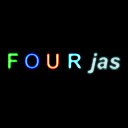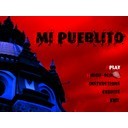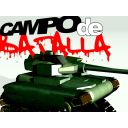The Factory

|
Play online: Newgrounds, Mindjolt (in Facebook), Mochimedia (and many more!). Download: Direct Download (298Kb) (swf from Mochimedia). Requirements: Pentium IV 1GHz, 64M RAM, 480×640 16 bits videocard, soundcard. Code: the_factory.zip (all the '.as' files, but not the '.fla'). Tools used: Flash CS3. More Info: Great Games Experiment, Newgrounds. |
The second project I develop all by my own (except for the music). As most of my games, this one was also a learning experiment. I wanted to continue working with AS3 and to try out a physics library (Box2D), but more importantly, to get a feel on how most flash games make a profit (viral distribution, Mochiads, sponsorships, etc). Actually, I think that promoting this game and making adjustments to be hosted at certain sites took roughly the same time, if not more, than the actual development which took about 2-3 weeks (not fully into it). The response was better than I initially predicted, being front-paged at Newgrounds, getting some sponsorships and having over half a million plays in more than 650 hosts (according to Mochibots).




